Adult literacy: A ray of hope for refugees towards better livelihoods
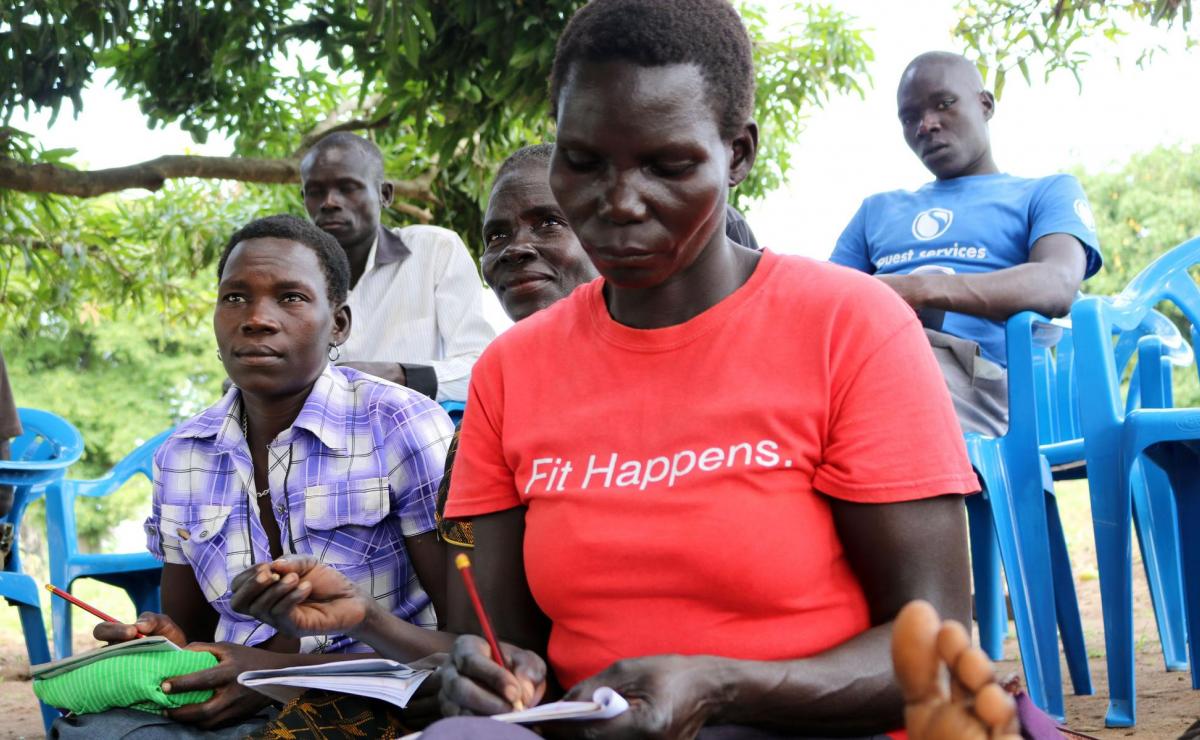
Education is not a privilege; it is a human right. However, millions of people around the world have been denied this essential right. According to a 2017 report from The United Nations the Educational, Scientific and Cultural Organization(UNESCO), 264 million children don’t go to school around the world. This has resulted in to the enormous growing poverty rate worldwide.
Since education is key in improving people’s livelihoods, the Lutheran World Federation (LWF) with funds from the EU Humanitarian Aid established and rolled out a unique education program in Palorinya and Adjumani district’s refugee settlements.
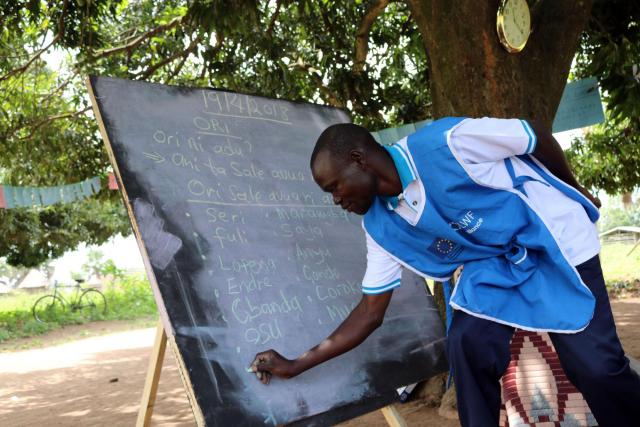
The Functional Adult Literacy (FAL) education program is uniquely tailored to meet the basic education needs of adult illiterates. Students in the FAL program learn the basic literacy and numeracy.
“Thirty people converge here thrice a week to learn how to read, write and calculate figures.” Says Paul Sunday Odriga a FAL Instructor at Duba Functional Literacy School in Duba village, Adjumani district that was established by LWF with funds from the EU Humanitarian Aid.
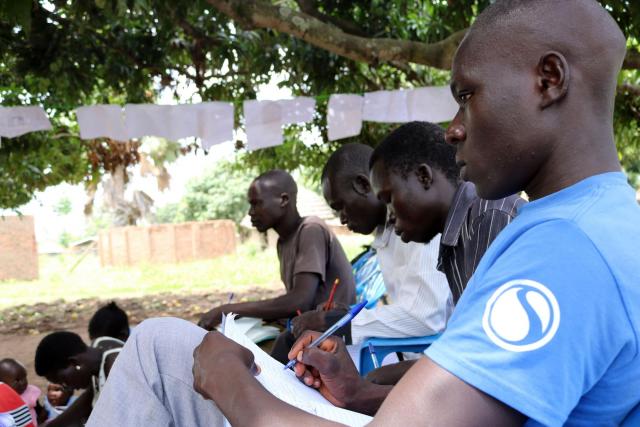
Education for better livelihoods
With basic knowledge in literacy and numeracy, the education program beneficiaries can manage group and individual businesses as well as saving associations.
James Erama owns a retail shop for a business, he explains that his business used to register high losses every month. Erama blames this on his ignorance in numeracy and literacy. He explains that he couldn’t balance his finances or track his investments, sales and profits.
He however adds that ever since he learned how to read, write and to calculate money from Duba FAL Centre, the losses have almost become history. “I now have a cash book where I record all the goods in my shop, the sales and profits.” 50-year-old Ipio Juliet, another member of Duba FAL Centre and Kadabaara business group says that she has learned how to read and write. “With my knowledge in reading and writing, I can track of my business through records.”
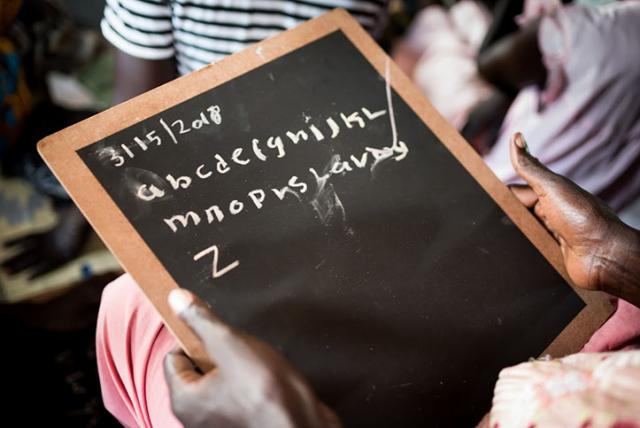
Over 30 people acquiring knowledge at Duba FAL Centre are looking forward to establishing a group and individual businesses after the six months’ course. “We have been supported with a cash grant worth UGX 6,000,000 by LWF and the EU Humanitarian Aid and we have established a retail business to earn a sustainable income and make poverty history.” Ipio adds.
The group hopes to save profits from the group business in a VSLA where all individuals will have access to loans to establish personal/individual businesses.
LWF has supported 80 groups (20 in Adjumani 60 in Moyo) with cash grants, with 415 beneficiaries attending the education program. The groups have established income generating activities to earn a collective income. “We have supported the groups to ensure that they rebuild their livelihoods for self-sustenance.” Says LWF’s Jean Martin Olego.
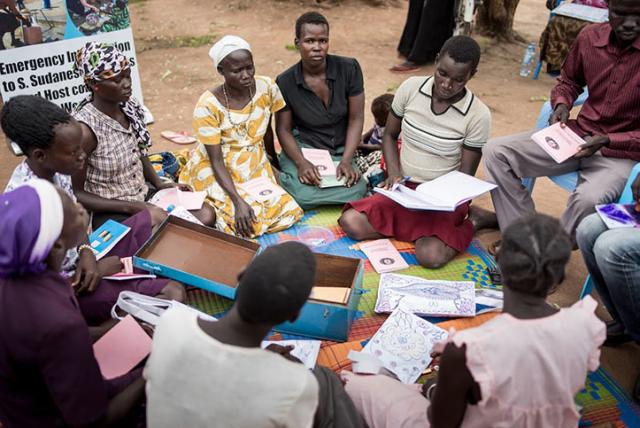
Education influences savings and loan structures
While beneficiaries from the education program establish and manage businesses, they have also established village savings and loan associations (VSLAs). “LWF introduced the idea to us and trained us on the basics of collecting saving and loan acquisition.” Says Erama, explaining that after the training, LWF provided the group with a VSLA kit that includes; a cash box, cash books, a calculator and savings books.
Through the VSLA, members save between UGX 1,000 and 5,000 per week and can acquire quick loans at any time with the least interest charged. “Saving is now part of our lives, and with our savings, we can plan for our futures, take our children to school and also establish businesses for sustainable incomes.”Ipio adds.
All the sixteen FAL centres established by LWF in Palorinya and Adjumani settlements have VSLAs through which they save and acquire loans for development.
Adult literacy activities in Palorinya and Adjumani district’s settlements are funded by the EU Humanitarian Aid.

